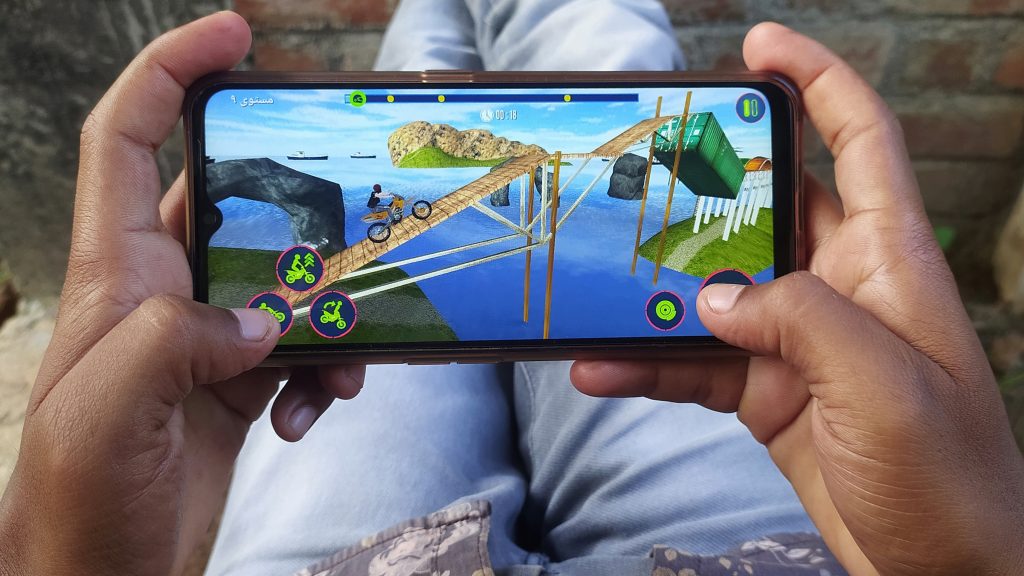Sixty percent of children ages 13-17 have experienced harassment while playing games online, according to a first-of-its-kind survey of online gaming experiences released today by the ADL (Anti-Defamation League) Center for Technology and Society.
Despite the significant percentage of young adults who reported experiencing harassment while gaming online within the six months prior to the June 7-25 survey period, less than 40 percent of parents or guardians of young people surveyed reported implementing safety controls in online multiplayer games. Additionally, less than half of teenage gamers say that they talk to the adults in their lives about their experiences in online multiplayer games.
“This new research examining the experiences of young online gamers sheds important light on their specific experiences, and unfortunately reveals a deeply disturbing trend: teenage gamers are harassed almost as often as adult gamers,” said Jonathan A. Greenblatt, ADL CEO. “By allowing this harassment of young people to continue, we risk children feeling that they should be ashamed of who they are. That message is completely unacceptable, and online gaming platforms have a responsibility to do better.”
Additionally, the survey found that 71 percent of adults ages 18-45 said they experienced severe abuse, including physical threats, stalking and sustained harassment within the first six months of 2021.
For the third year in a row, gender was the most frequently cited reason for abuse experienced by adults. The largest increases in identity-based harassment occurred among adult respondents who identified as women (49 percent in 2021, compared to 41 percent in 2020), followed by those who identified as Black or African American (42 percent in 2021, compared to 31 percent in 2020), and Asian American (38 percent in 2021, compared to 26 percent in 2020). It was also common for adult respondents to report identity-based harassment because of their religion, including among Muslims (26 percent in 2021) and Jews (22 percent in 2021), though there was no significant change from the year prior. It is worth noting that although there was no significant change in identity-based harassment of adult LGBTQ+ players (38 percent in 2021 versus 37 percent in 2020), the number is still significant.
The survey also revealed that extremist messages continue to be a concern in online games: One in 10 young gamers and 8 percent of adult gamers were exposed to white supremacist ideologies in the context of online multiplayer games within the prior six-month period.
“Time and again, we’ve seen that white supremacists and other extremists use online gaming platforms not only to harass their targets, but they also use online gaming platforms as a forum for recruitment,” Greenblatt continued. “Online gaming companies must do a better job of moderating the content on their platforms, otherwise they are complicit in the spread of hate and harassment, as well as extremism.”
ADL’s report includes detailed recommendations for actions the games industry, civil society and the government should take to reduce hateful content and harassing behavior in online games. These include asking gaming platforms to implement product safety controls as the default, civil rights and education groups, among others, broadening their work to address the impact of online multiplayer games, and government legislators strengthening and enforcing laws that protect targets of online hate and harassment. These recommendations align with ADL’s REPAIR Plan to fight online hate and extremism.
ADL collected nationally representative survey results in collaboration with Newzoo, a data analytics firm that focuses on gaming and esports. There were 2,206 responses, including 542 children, ages 13-17, and 1,664 adults, ages 18-45, who play games across PC, console and mobile platforms, including 1,827 responses from people who play online multiplayer games. This included oversampling individuals who identify as LGBTQ+, Jewish, Muslim, Black or African American and Hispanic/Latinx. Surveys were conducted from June 7 to June 25, 2021, and the margin of error based on the sample size is generally two to three percentage points, though this may be slightly higher when looking at smaller sample sizes.
The survey sheds light on the growing impact of online harassment on targets. For instance, out of the 81 million American adults who experience harassment in online multiplayer games, only 18 percent stated it had no impact on how they play—meaning harassment shapes the gameplay of over 66 million American adults.
Although negative experiences with online gaming are rampant, survey respondents did report positive aspects of digital social spaces that exist inside online games including opportunities to connect, build friendships and communities, and learn. Eighty-seven percent of online multiplayer gamers have experienced some form of positive social interaction while playing online multiplayer games, including Madden NFL with 96 percent of players reporting positive social experiences and DOTA 2, PlayerUnknown’s Battlegrounds (PUBG: Battlegrounds), Call of Duty and Roblox with 94 percent reporting positive social experiences.























